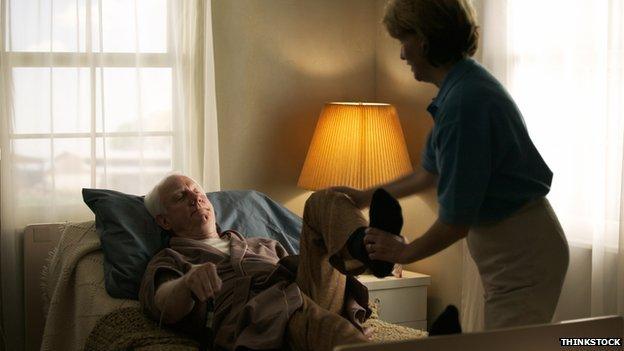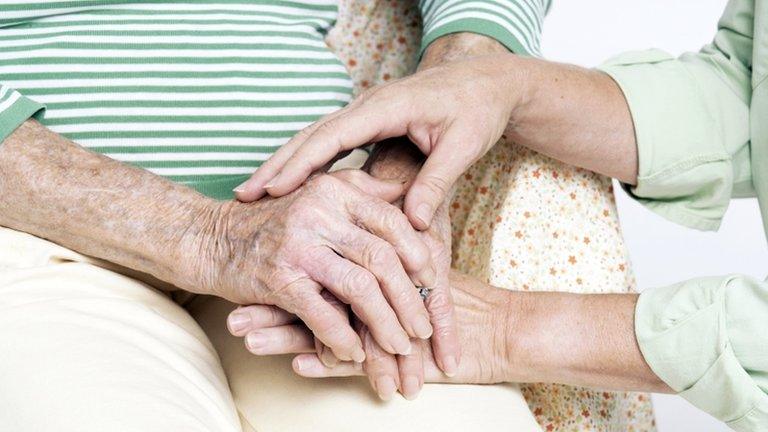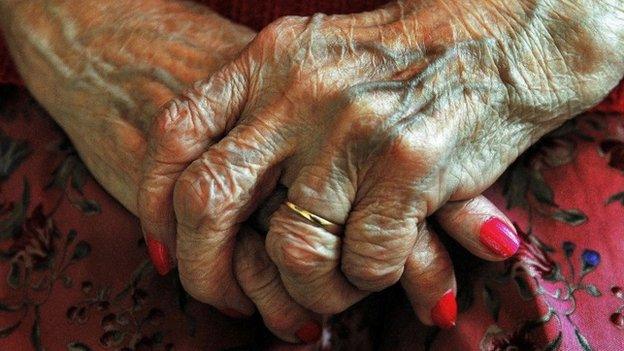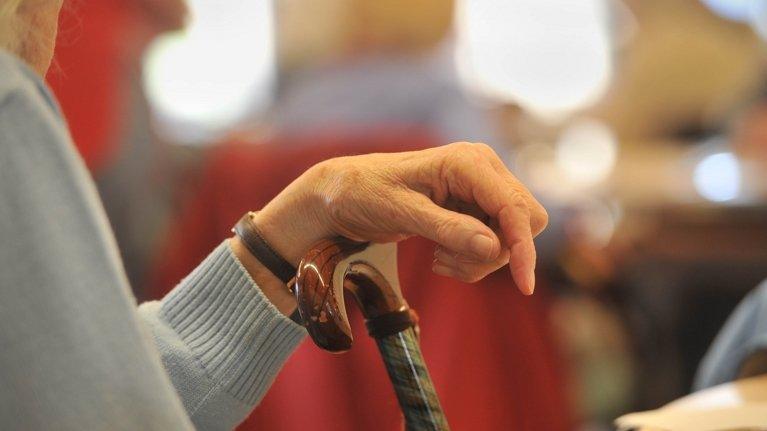New legislation introduces 'DIY' personal care option
- Published

The new Act aims to give people who require care greater flexibility in when they are treated
New legislation means people who need care from a local authority now have the option of being given cash to organise it themselves.
The Self-Directed Support (Scotland) Act requires local authorities to offer personal payments if requested.
It means people care can hire assistants and arrange for them to come at a time that suits them.
Unison said it supported the Act but was concerned that it would be used to cut funding for social care.
About 100,000 people are currently assessed by local authorities as needing social care support.
Public Health Minister Michael Matheson said: "The Self-directed Support Act is about empowering people to be able to take control of their own lives.
"Having a care package designed by someone else works for some people, but not others. We want to give everyone the ability to choose care that works for them."
Suselle Boffey has been organising her own 24-hour care for more than 20 years, under a pilot scheme in Edinburgh. She employs four personal assistants, working in shifts, to look after her.
"I was apprehensive at first," she said, "I didn't know how it was going to work, but it made a huge difference. I could meet friends for lunch or dinner. It meant I could wash my hair at midnight if I chose."
She added: "I had much more choice in life about who worked for me, and what I could do when."
Suselle, who has a muscle wasting condition and needs a wheelchair and ventilator, has since enjoyed holidays all over Europe with one of her assistants. However, it also means she has become an employer.
"It can become difficult and challenging, particularly when you are arguing with each other," she said.
"That does happen. I suppose the most difficult aspect of that is when you are getting up or going to bed and there is something that you need to sort out while you are having your personal care delivered, but for the most part it is near enough perfect."
Calculating wages
Suselle uses the services of Lothian's Centre for Inclusive Living to help her manage her employees.
They calculate wages and accompany Suselle when she is conducting interviews.
Under the Act, local authorities will continue to provide care packages for people who don't want to organise their own care.
Trade union Unison supports the principle of self-direct care but is concerned that it will be used to cut funding for social care.
"The rhetoric of choice and control is often used as cover for a deteriorating service," said Scottish organiser Dave Watson.
He added: "Cuts in budget provision means that the individual has a smaller budget to buy equivalent services. This has contributed to the 'race to the bottom' in home care."
Unison also points out that many people do not understand or want the responsibility of being an employer. Meanwhile fewer users of council services, such as day centres, means these could face cuts.
"This leads to greater social isolation that we know has a damaging impact on health," said Mr Watson.
The public health minister said: "Of course, not everyone will want, or feel able to design their own care."
Mr Matheson added: "They can continue to have their package arranged if that's what's best for them.
"Others might feel a little overwhelmed by the new options open to them, so we've made sure there are a range of support options available for people to help them make the best decisions."
- Published20 January 2014

- Published14 January 2014

- Published13 June 2013
